-
 Bitcoin
Bitcoin $106,782.3966
-0.72% -
 Ethereum
Ethereum $2,406.7764
-1.16% -
 Tether USDt
Tether USDt $1.0005
0.02% -
 XRP
XRP $2.0918
-1.53% -
 BNB
BNB $644.5785
-0.17% -
 Solana
Solana $141.0925
-0.69% -
 USDC
USDC $1.0000
0.02% -
 TRON
TRON $0.2721
0.18% -
 Dogecoin
Dogecoin $0.1585
-1.26% -
 Cardano
Cardano $0.5497
-1.14% -
 Hyperliquid
Hyperliquid $35.8493
-1.58% -
 Bitcoin Cash
Bitcoin Cash $502.3089
2.20% -
 Sui
Sui $2.7092
3.87% -
 Chainlink
Chainlink $12.8551
-1.85% -
 UNUS SED LEO
UNUS SED LEO $9.0548
0.53% -
 Stellar
Stellar $0.2344
-0.85% -
 Avalanche
Avalanche $17.2676
-0.23% -
 Toncoin
Toncoin $2.8282
0.56% -
 Shiba Inu
Shiba Inu $0.0...01113
-1.14% -
 Litecoin
Litecoin $83.9593
-0.93% -
 Hedera
Hedera $0.1447
0.82% -
 Monero
Monero $306.9022
-2.07% -
 Bitget Token
Bitget Token $4.6358
3.42% -
 Dai
Dai $0.9999
0.01% -
 Ethena USDe
Ethena USDe $1.0001
0.02% -
 Polkadot
Polkadot $3.3211
0.06% -
 Uniswap
Uniswap $6.8775
0.75% -
 Pi
Pi $0.5664
-0.27% -
 Aave
Aave $256.0055
1.28% -
 Pepe
Pepe $0.0...09013
-3.24%
How to protect the SHIB wallet address? Security setting tips
To secure your SHIB wallet, use a hardware wallet, encrypt keys, enable 2FA, update software, and monitor transactions to protect against phishing and unauthorized access.
May 13, 2025 at 04:07 pm
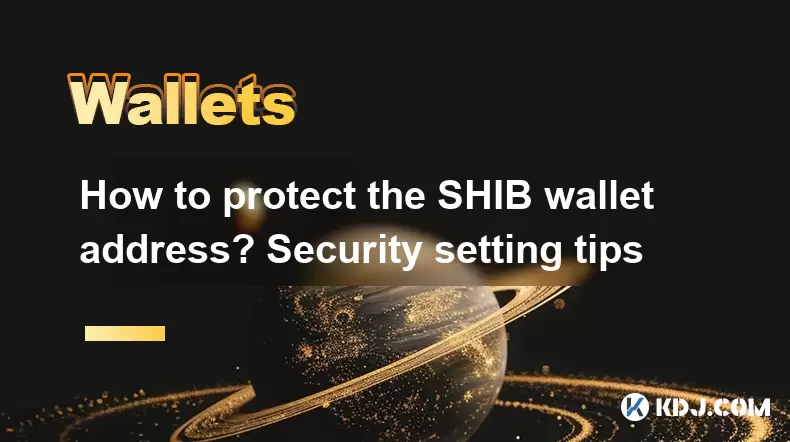
Protecting your SHIB wallet address is crucial to safeguarding your cryptocurrency assets. With the rise of digital currencies, securing your wallet has become more important than ever. This article will provide you with detailed security setting tips to ensure your SHIB wallet remains safe from potential threats.
Understanding SHIB Wallet Security
Before diving into specific security measures, it's important to understand the basics of SHIB wallet security. SHIB, or Shiba Inu, is a decentralized cryptocurrency that operates on the Ethereum blockchain. As such, securing your SHIB wallet involves protecting your private keys and ensuring that your wallet software is up to date and secure.
Choosing the Right Wallet
The first step in protecting your SHIB wallet address is selecting the right type of wallet. There are several options available, each with its own set of security features:
- Hardware Wallets: These are physical devices that store your private keys offline, making them highly secure. Popular options include Ledger and Trezor.
- Software Wallets: These are applications that run on your computer or mobile device. Examples include MetaMask and Trust Wallet.
- Paper Wallets: These are physical copies of your public and private keys, often printed on paper. They are secure if kept in a safe place but can be vulnerable to physical damage or loss.
When choosing a wallet, consider factors such as ease of use, security features, and compatibility with SHIB. Hardware wallets are generally considered the most secure option, but they may be more expensive and less convenient for frequent transactions.
Securing Your Private Keys
Your private keys are the most critical component of your SHIB wallet. Losing your private keys means losing access to your SHIB, so it's essential to keep them safe. Here are some tips for securing your private keys:
- Use a Hardware Wallet: As mentioned, hardware wallets store your private keys offline, making them less susceptible to hacking attempts.
- Encrypt Your Keys: If you're using a software wallet, ensure that your private keys are encrypted with a strong password. Never share this password with anyone.
- Create a Backup: Always create a backup of your private keys and store it in a secure location, such as a safe deposit box or a fireproof safe. Never store your backup on a computer or online storage service.
- Use Multi-Signature Wallets: Some wallets support multi-signature transactions, which require multiple private keys to authorize a transaction. This adds an extra layer of security.
Enabling Two-Factor Authentication (2FA)
Two-factor authentication (2FA) adds an additional layer of security to your SHIB wallet. 2FA requires you to enter a code sent to your mobile device or generated by an authenticator app before you can access your wallet. Here's how to enable 2FA:
- Choose a 2FA Method: Most wallets support 2FA via SMS, email, or authenticator apps like Google Authenticator or Authy.
- Enable 2FA in Your Wallet: Go to your wallet's settings and look for the 2FA option. Follow the prompts to set up 2FA using your preferred method.
- Secure Your 2FA Device: Ensure that the device receiving your 2FA codes is secure. Use a strong password and enable biometric authentication if available.
Keeping Your Wallet Software Updated
Outdated wallet software can be vulnerable to security exploits. Regularly update your wallet software to ensure you have the latest security patches. Here's how to keep your wallet software up to date:
- Check for Updates: Most wallets will notify you when an update is available. Always install these updates as soon as possible.
- Use Official Sources: Only download wallet software from the official website or app store. Avoid third-party sources, as they may contain malware.
- Backup Before Updating: Before updating your wallet software, create a backup of your private keys to ensure you don't lose access to your SHIB.
Protecting Against Phishing Attacks
Phishing attacks are a common threat to cryptocurrency wallets. Phishing involves tricking you into revealing your private keys or other sensitive information. Here are some tips to protect against phishing attacks:
- Verify URLs: Always double-check the URL of the website you're visiting. Phishing sites often use similar-looking URLs to trick you.
- Use Bookmarking: Bookmark the official website of your wallet provider and use the bookmark to access the site instead of typing the URL manually.
- Be Wary of Emails: Be cautious of emails claiming to be from your wallet provider. Never click on links in unsolicited emails. Instead, go directly to the official website to check for any updates or notifications.
Monitoring Your Wallet Activity
Regularly monitoring your SHIB wallet activity can help you detect any unauthorized transactions early. Set up transaction alerts and review your wallet's transaction history frequently. Here's how to monitor your wallet activity:
- Enable Transaction Alerts: Many wallets allow you to set up alerts for incoming and outgoing transactions. Enable these alerts to stay informed about any activity in your wallet.
- Review Transaction History: Regularly check your wallet's transaction history to ensure all transactions are legitimate. If you notice any suspicious activity, take immediate action to secure your wallet.
- Use a Transaction Monitoring Service: Some third-party services offer advanced transaction monitoring and can help you detect suspicious activity more effectively.
FAQs
Q: Can I use the same wallet for multiple cryptocurrencies, including SHIB?
A: Yes, many wallets support multiple cryptocurrencies, including SHIB. However, ensure that the wallet you choose is compatible with SHIB and has strong security features.
Q: What should I do if I suspect my SHIB wallet has been compromised?
A: If you suspect your wallet has been compromised, immediately transfer your SHIB to a new, secure wallet. Change any passwords associated with your wallet and enable 2FA if you haven't already. Report the incident to your wallet provider and consider seeking professional help to secure your assets.
Q: How often should I back up my SHIB wallet?
A: It's a good practice to back up your SHIB wallet every time you make significant changes, such as adding new funds or updating your wallet software. At a minimum, back up your wallet monthly to ensure you have a recent copy of your private keys.
Q: Is it safe to store my SHIB on an exchange?
A: Storing your SHIB on an exchange can be convenient for trading, but it's generally less secure than using a personal wallet. Exchanges are often targeted by hackers, so it's recommended to transfer your SHIB to a secure personal wallet for long-term storage.
Disclaimer:info@kdj.com
The information provided is not trading advice. kdj.com does not assume any responsibility for any investments made based on the information provided in this article. Cryptocurrencies are highly volatile and it is highly recommended that you invest with caution after thorough research!
If you believe that the content used on this website infringes your copyright, please contact us immediately (info@kdj.com) and we will delete it promptly.
- Ruvi AI: The Cardano Successor Delivering Massive ROI Forecasts?
- 2025-06-28 06:30:12
- Ruvi AI: The 100x Bull Run Contender Outshining Binance Coin?
- 2025-06-28 06:30:12
- Moonshot, Memecoins, and Apple Pay: A New Era of Crypto?
- 2025-06-28 06:41:55
- Bitcoin, Energy, and Fed Rate Cuts: Navigating the New Crypto Landscape
- 2025-06-28 06:41:56
- Euro Stablecoins Surge: Can They Outpace the Dollar?
- 2025-06-28 06:41:56
- Bitcoin, Stablecoins, and Treasuries: A New Era of Digital Finance
- 2025-06-28 04:50:12
Related knowledge

How to stake cryptocurrencies on Coinbase? Benefits and risks
Jun 27,2025 at 06:36pm
Understanding Cryptocurrency Staking on CoinbaseStaking cryptocurrencies involves locking up digital assets to support the operations of a blockchain network, typically in return for rewards. Coinbase, one of the most popular cryptocurrency exchanges globally, offers staking services for several proof-of-stake (PoS) coins. Users can stake their holdings...
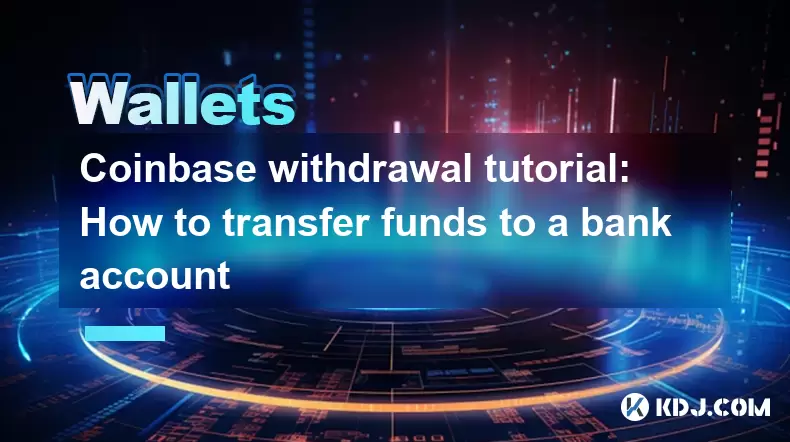
Coinbase withdrawal tutorial: How to transfer funds to a bank account
Jun 28,2025 at 02:35am
Understanding Coinbase WithdrawalsCoinbase is one of the most widely used cryptocurrency platforms, allowing users to buy, sell, and store digital assets. Once you've successfully traded or held your crypto on Coinbase, the next logical step may be to withdraw funds to a bank account. This process involves converting your cryptocurrency into fiat curren...
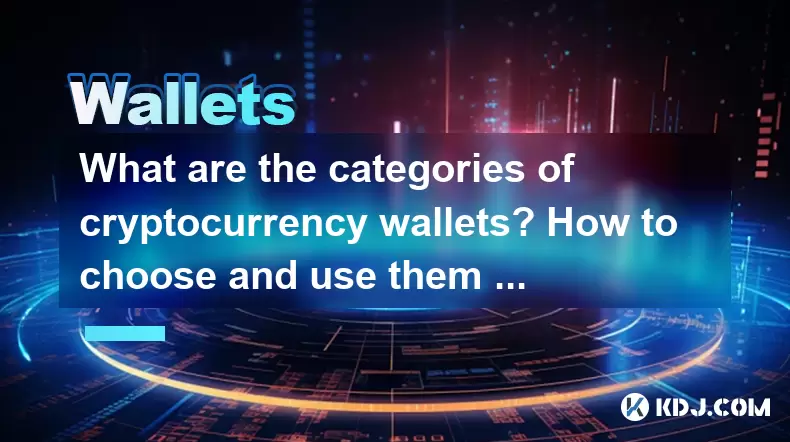
What are the categories of cryptocurrency wallets? How to choose and use them safely?
Jun 21,2025 at 10:42pm
Understanding Cryptocurrency WalletsCryptocurrency wallets are essential tools for anyone involved in the digital asset ecosystem. They allow users to store, send, and receive cryptocurrencies securely. Unlike traditional wallets that hold physical money, crypto wallets manage cryptographic keys—private and public—which interact with blockchain networks...
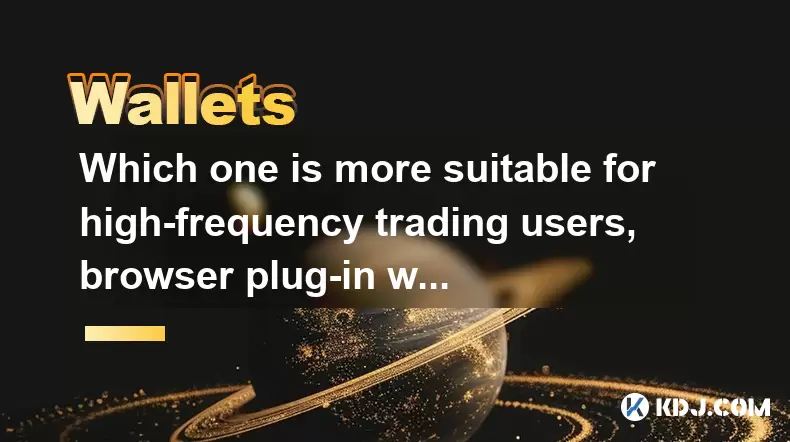
Which one is more suitable for high-frequency trading users, browser plug-in wallets or independent application wallets?
Jun 23,2025 at 08:22am
Understanding the Role of Wallets in High-Frequency TradingFor high-frequency trading (HFT) users in the cryptocurrency market, wallet selection is critical due to the need for speed, security, and seamless integration with trading platforms. HFT involves executing a large number of trades within seconds or even milliseconds, which demands a wallet that...

What are the differences between the operating mechanisms of on-chain wallets and off-chain wallets? Is there a big difference in transaction fees?
Jun 25,2025 at 08:49am
Understanding On-Chain WalletsOn-chain wallets are digital wallets that directly interact with the blockchain network. These wallets store users' private keys, which are essential for signing and authorizing transactions on the blockchain. When using an on-chain wallet, every transaction must be recorded and verified by the decentralized nodes in the ne...
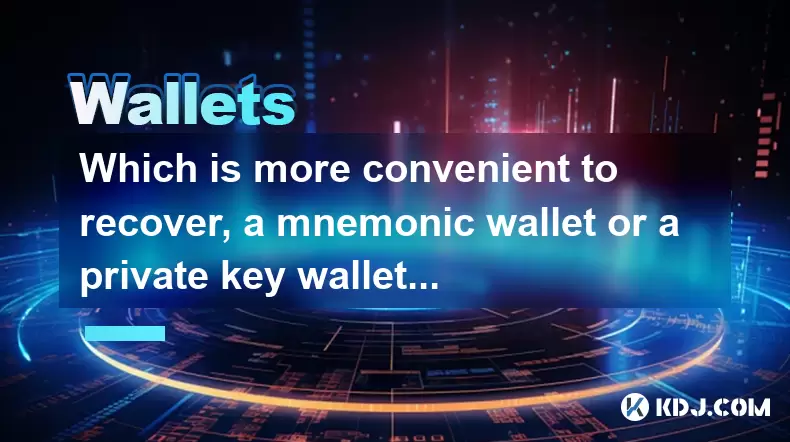
Which is more convenient to recover, a mnemonic wallet or a private key wallet? Will security be compromised?
Jun 20,2025 at 06:36am
Understanding Mnemonic Wallets and Private Key WalletsIn the world of cryptocurrency, wallet recovery is a crucial aspect that users must understand before storing digital assets. Two popular methods for securing and recovering wallets are mnemonic phrases and private keys. Both serve as gateways to access funds, but they differ significantly in terms o...

How to stake cryptocurrencies on Coinbase? Benefits and risks
Jun 27,2025 at 06:36pm
Understanding Cryptocurrency Staking on CoinbaseStaking cryptocurrencies involves locking up digital assets to support the operations of a blockchain network, typically in return for rewards. Coinbase, one of the most popular cryptocurrency exchanges globally, offers staking services for several proof-of-stake (PoS) coins. Users can stake their holdings...

Coinbase withdrawal tutorial: How to transfer funds to a bank account
Jun 28,2025 at 02:35am
Understanding Coinbase WithdrawalsCoinbase is one of the most widely used cryptocurrency platforms, allowing users to buy, sell, and store digital assets. Once you've successfully traded or held your crypto on Coinbase, the next logical step may be to withdraw funds to a bank account. This process involves converting your cryptocurrency into fiat curren...

What are the categories of cryptocurrency wallets? How to choose and use them safely?
Jun 21,2025 at 10:42pm
Understanding Cryptocurrency WalletsCryptocurrency wallets are essential tools for anyone involved in the digital asset ecosystem. They allow users to store, send, and receive cryptocurrencies securely. Unlike traditional wallets that hold physical money, crypto wallets manage cryptographic keys—private and public—which interact with blockchain networks...

Which one is more suitable for high-frequency trading users, browser plug-in wallets or independent application wallets?
Jun 23,2025 at 08:22am
Understanding the Role of Wallets in High-Frequency TradingFor high-frequency trading (HFT) users in the cryptocurrency market, wallet selection is critical due to the need for speed, security, and seamless integration with trading platforms. HFT involves executing a large number of trades within seconds or even milliseconds, which demands a wallet that...

What are the differences between the operating mechanisms of on-chain wallets and off-chain wallets? Is there a big difference in transaction fees?
Jun 25,2025 at 08:49am
Understanding On-Chain WalletsOn-chain wallets are digital wallets that directly interact with the blockchain network. These wallets store users' private keys, which are essential for signing and authorizing transactions on the blockchain. When using an on-chain wallet, every transaction must be recorded and verified by the decentralized nodes in the ne...

Which is more convenient to recover, a mnemonic wallet or a private key wallet? Will security be compromised?
Jun 20,2025 at 06:36am
Understanding Mnemonic Wallets and Private Key WalletsIn the world of cryptocurrency, wallet recovery is a crucial aspect that users must understand before storing digital assets. Two popular methods for securing and recovering wallets are mnemonic phrases and private keys. Both serve as gateways to access funds, but they differ significantly in terms o...
See all articles























































































